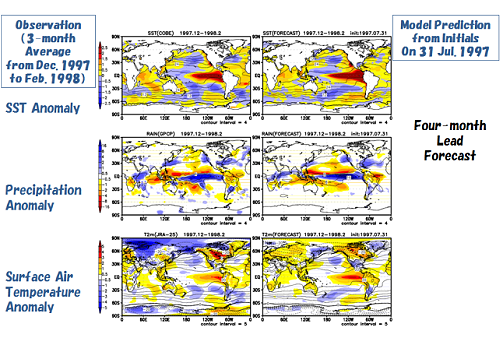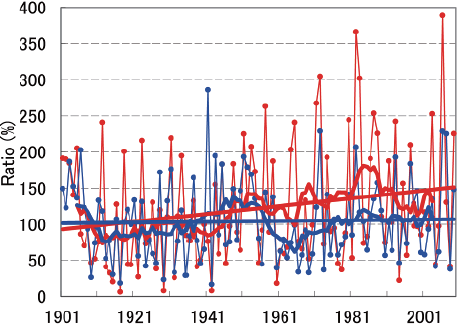Research on advanced seasonal prediction and mechanisms of extreme climate events
The purpose of this research is to contribute to precision improvement in and appropriate use of seasonal forecasts. MRI is currently developing a next-generation seasonal prediction system with a high-resolution global coupled ocean-atmosphere model and conducting research on the mechanisms and predictability of extreme climate events through data analysis and numerical experiments. The Institute is also creating basic climate datasets needed to evaluate the accuracy of seasonal forecasts and to investigate the mechanisms of extreme climate events.

Figure shows the observed anomalies of sea surface temperature (upper-left), precipitation (middle-left), and surface air temperature (lower-left) for the boreal winter in 1997-1998, and the corresponding forecasts by the JMA/MRI seasonal prediction experiment with the initials in July 1997 (right). A strong ENSO had developed from the boreal summer of 1997 to the winter of 1998 and significantly influences local climates all over the world, as observed (left). We can find the seasonal prediction system successfully forecasted them with four-month lead-time (right).

Ratio of total rainfall for July 11 ‒ 31 to the normal over the Sea of Japan side (red lines) and the Pacific side (blue lines) of Japan. The straight lines show the trend for each ratio over the past 109 years. An increasing trend in rainfall on the Sea of Japan side is observed during this period (the later stage of the rainy season).
